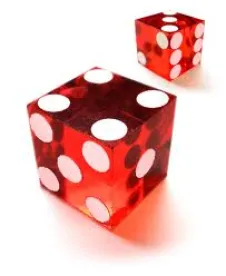As we have previously reported, the subject of loot boxes has received increasing scrutiny around the world. In one of the most recent pronouncements, the Dutch Gambling Authority (the “Authority”) declared the loot box mechanics used in a number of games to be illegal gambling and warned that it will begin enforcement actions as of June 20, 2018. It also indicated that the Authority is in close contact with other European regulators, so this report may lead to similar investigations and/or outcomes in other EU member states. Additionally, the Authority declared that all of the loot boxes that were studied could be addictive, but did not provide suitable control measures to exclude vulnerable groups from loot boxes and/or to prevent addiction.
It is important if you are using loot boxes that you analyze your usage and make any changes prior to June 20, 2018 to avoid a potential enforcement action.
The following is a more detailed explanation of the actions by the Authority. On April 19, 2018, the Authority published a report on loot boxes and a press release. The report essentially reviewed the legal status of the loot boxes, and also probed into whether these posed addiction risks to players. The Authority selected the games in its report based on their popularity on a leading Internet platform that streams videos of games and players, but did not name the games.
1) Legal status of loot boxes under Dutch law
The Authority used its newly published “Guide on Assessing Games of Chance” to determine the legal status under the Dutch Betting and Gaming Act. Two key criteria to decide if a loot box qualifies as a chance game under Dutch law are whether or not (i) these loot boxes are determined by chance and (ii) the prizes to be won can be traded outside of the game: the prizes have a market value.
The study revealed that four of the ten loot boxes that were studied contravene the gambling law. The stated reason was that the content of these loot boxes is determined by chance and that the prizes to be won can be traded outside of the game: the prizes have a market value. Offering these types of games of chance to Dutch consumers without a license is prohibited. According to the Authority, in-game goods have a market value as soon as they are transferable. In these cases, a transaction can be made with these specific in-game goods, including sale of these goods.
The Authority addressed the common argument that with loot boxes players always get something of value, because they always include some virtual item(s), even if it is not a rare item that the player hoped for. The Authority stated: “In-game goods are always obtained when these loot boxes are opened. Some parties use this fact to support their argument that the game is not a game of chance. This argument is not valid. The in-game goods differ and have different market values if they can be traded. It is beyond doubt that the real winner is the person who wins the major, valuable prize with a high market value.”
The Authority further noted that in these cases, a transaction can be made with these specific in-game goods, including sale of these goods. When opening loot boxes, the consumer cannot influence the outcome (so the contents of a given loot box only become known to a player after they complete the purchase). It concluded that those games that feature in-game goods that can be traded fall under Article 1 of the Betting and Gaming Act. Under the Dutch Betting and Gaming Act, the promotion of games of chance and the distribution of items with a market value without the necessary license is prohibited.
The Authority found that the other six games with loot boxes that were studied do not contravene the law, as there are no in-game goods with a market value in these games. It thus concluded that these games do not satisfy the definition of a prize in Article 1 of the Betting and Gaming Act.
The Authority did not elaborate in its report what constitutes the goods being tradeable. For example, it did not address whether the existence of an authorized secondary market would trigger a finding that the goods have value. In its “Guide on Assessing Games of Chance” it provided an example. There, it said:
The games League of Legends (LoL) and Counter Strike – Global Offensive (CS-GO) are popular computer games (E-sports). These are primarily free games (‘fremium’ games) where participants can spruce up their accounts by buying or winning so-called ‘skins’ (cosmetic elements in the game). These skins often have no influence on the outcome of the game. The difference between the two games is that the skins of CS-GO, but not of LoL, are currently being traded. LoL skins are ‘attached’ to the player account, while CS-GO skins are transferable between accounts. Trade in CS-GO skins is therefore possible and CS-GO skins represent a potential economic value. This does not apply to LoL skins and these skins therefore do not represent any economic value.
2) Addiction risks
According to the Authority:
The analyses that are currently available indicate that all of the loot boxes that were studied could be addictive. Loot boxes are similar to gambling games such as slot machines and roulette in terms of design and mechanisms. There are, however, no indications of loot boxes being opened on a large scale by problem players and/or addicted players. Socially vulnerable groups, such as young people, are being encouraged to play games of chance.
The Authority stated that to date, the providers of the games with loot boxes have not provided suitable control measures to exclude vulnerable groups from loot boxes and/or to prevent addiction. For example, only two games have been awarded a PEGI rating of PEGI 18. The other games have a PEGI 3, PEGI 7, PEGI 12, or no PEGI rating.
The Authority called on providers of this type of loot box to remove the addiction-sensitive elements (‘almost winning’ effects, visual effects, ability to keep opening loot boxes quickly one after the other and suchlike) from the games and to implement measures to exclude vulnerable groups or to demonstrate that the loot boxes on offer are harmless.
Game companies using loot boxes should consider these, and other issues that have arisen, in assessing how best to deploy their loot box mechanics on a going forward basis. If you are serving players in Europe, you would be well advised to do so before June 20, 2018.




 />i
/>i

